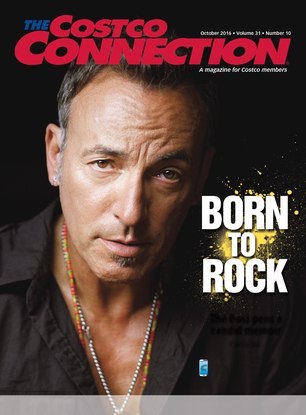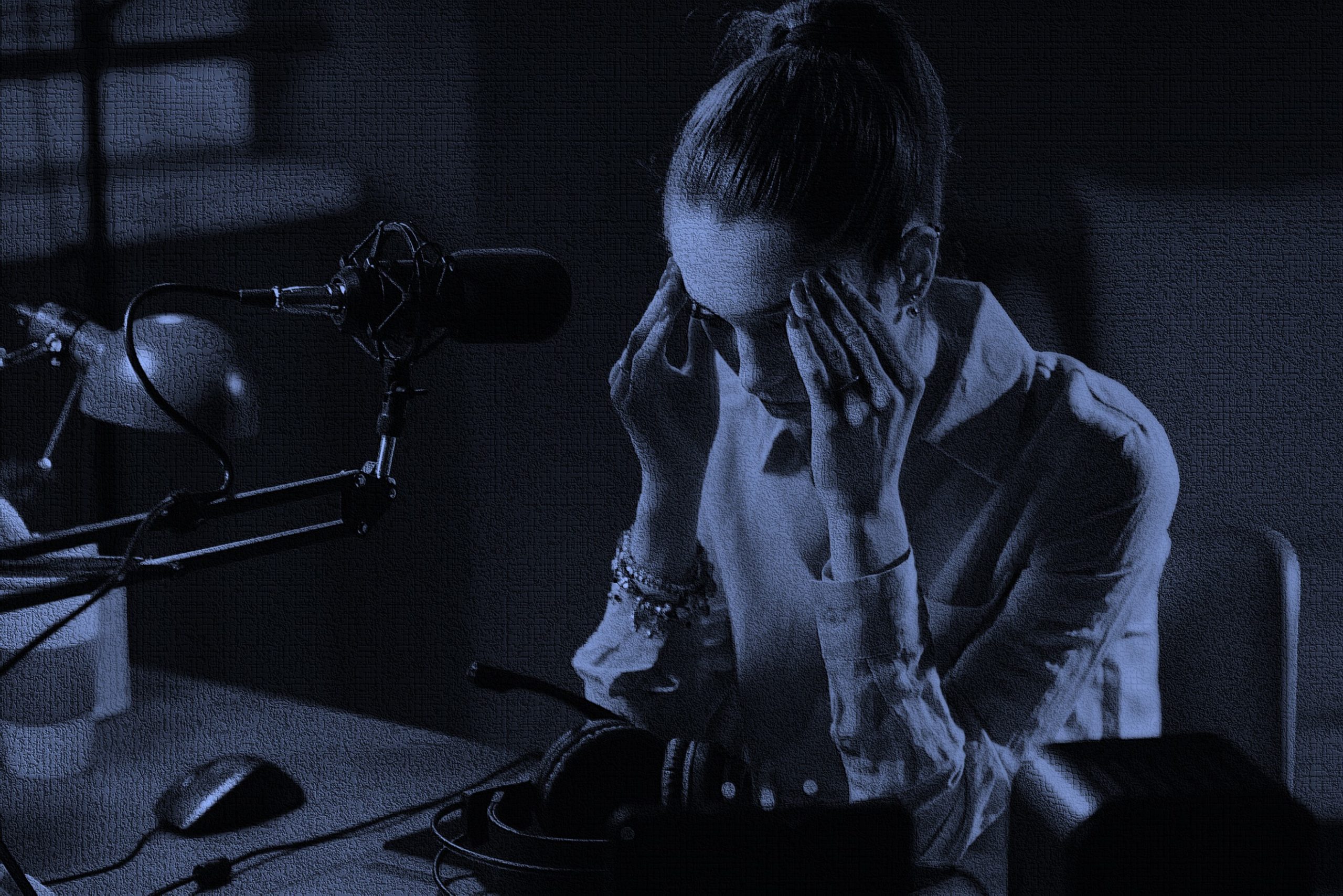
It seems like Bruce Springsteen is always making news. Next year, he’ll have the band back together – the E Street Band, that is – for a much-anticipated tour of North America. The Boss is now 73, and still going strong.
Today’s post goes back six years, but it still resonates in today’s entertainment landscape. It is all about music passion – retrospectively, that is. Oftentimes, you’ll hear Gen Z’s and Millennials lament “missing the 60’s” or the “MTV Era.” They wax nostalgic about musical periods they never experienced. For those of us who are veterans of these musical moments in time, they were magical, to be sure. But beyond the artists, albums, and concerts, it was the role music played for many of us in the hierarchy of our personal lives. For millions of us, music defined our lives.
Earlier this year, I wrote a post that touched on this vibe, “The Agification Of Broadcast Radio.” It focused on a recent podcast episode, Derek Thompson’s “Plain English,” featuring journalist Ted Gioia. In the interview, Gioia made the point that as a kid, a big chunk of his spending (mostly his allowance) was on music, especially albums in the 70’s when he grew up, as well as music magazines like Rolling Stone.
He contrasted that moment to today, where teens might have a Spotify account for $9.99 a month – and that’s all they may spend on music, excepting concerts and festivals. It’s a different time.
Today’s #TBT post also features Richard Sands, publisher and founder of “The Sands Report,” Alternative radio’s go-to trade. Six years ago, the format was struggling (when ISN’T it struggling?), and Richard pointed to the passion factor as a key reason why. And here we are in present-day radio, and this week, Alternative lost its New York City station when Audacy flipped it to a simulcast of WINS while RIFs in the air studio continue. The more things change…
Here in 2022, many formats that were once popular for the new music they played are floundering, unable to capture the moment because of streaming audio services and an audience that seems hopelessly fragmented. In the 70’s, we were all listening to the same Album Oriented Rock stations. In the 80’s, we were all watching MTV. In today’s highly personalized multimedia environment, there is no musical mainstream. Today’s youth are in their personal music bubbles. Assuming of course, that music is part of their entertainment menu.
For better or for worse. – FJ
October 2016
These days, you can read some truly great stories in some of the most unusual places. For example, I love browsing the Costco Connection, the monthly magazine Costco sends to its millions of members. This month, the cover story is “Born To Run,” an interview with Bruce Springsteen by Tim Talevich. The Boss is plugging his memoirs, and gave the big box store one of hundreds of interviews he’s done in the past few months.
But this is a good one. Talevich writes a strong story about Springsteen, but the money quote comes at the very end of the feature – a statement about music passion that has stuck with me since reading the story:
“I think for people from our generation that (rock) has played a very, very shaping and very powerful role. While I still believe it plays that role in young people’s lives, I think there’s a lot of other things that compete with it – the video games, so many other things. But for us, I mean music was everything.
“It was how you shaped your identity. It was how you chose your friends. You woke up to it in the morning and went to sleep with it at night. And it always pointed toward a bigger world and other possibilities.”
And by extension, Springsteen is likely talking about the role radio played in the life and times of his generation – Baby Boomers. Yet even among today’s Millennials who have all those distractions – the Internet, smartphones, social media – music delivered on the radio can still play an important role for consumers of all ages. And in any format.
Last week, I was asked by a reader of this blog if Classic Rock is a song-driven format or an artist-driven one. My feeling is that it’s more the latter.  Classic Rock fans tend to revere and appreciate artists, and generally enjoy hearing catalog songs from their favorite bands. The Classic Hits format, on the other hand, tends to be more about hit songs and less about the bands and artists who recorded them. But oftentimes, the success that both formats enjoy is wrapped up in the pure passion the airstaff delivers day in an day out when presenting the music they play.
Classic Rock fans tend to revere and appreciate artists, and generally enjoy hearing catalog songs from their favorite bands. The Classic Hits format, on the other hand, tends to be more about hit songs and less about the bands and artists who recorded them. But oftentimes, the success that both formats enjoy is wrapped up in the pure passion the airstaff delivers day in an day out when presenting the music they play.
The best Classic Rock jocks – and there are many of them around the country – are the ones who deliver the music with pure unbridled passion. We see and hear about it all the time in quantitative surveys, as well as in focus and listener groups we conduct. On the other hand, stations and jocks on auto-pilot often fail to ignite the joy for music that Springsteen speaks about.
In an environment where consumers construct their playlists or let an algorithm do the heavy lifting, the passion factor is sorely missing. Spotify, Pandora, and others are mechanical platforms that cannot replicate the personal connection that radio can deliver between the music for the fans who live for it.
And while The Boss’ formative experience was with rock music, a station’s embrace of the music has an impact with other formats, too. Right now, Alternative is trying to rekindle its momentum. After a nice long run, many stations are struggling. This prompted Richard Sands, publisher of the always entertaining The Sands Report, to launch a multi-issue series by asking the question, “What Is The Problem (If Any) With Alternative Radio?”
In the first issue, industry pundits talked about the ratings malaise that many Alternative and Active Rock stations are encountering. And some pointed to the music and the way it’s being selected and programmed as the culprit. But the final word went to a record promo exec who also laid the blame on the variables that radio can control:
“I think the problem is lazy presentation and lack of spirit. In other words, boring radio. Not the words you want to associate with a youth-based format.”
Perhaps all these decades of music testing, sorting, and scheduling have commoditized the music to a point where programmers and personalities have reduced songs into bite-sized marketing statements – the powers, the secondaries, and the fillers – rather than as the mini-passion plays they are for fans.
 And so we end up back where we started – with the person behind the mic having a major say in the way the music comes alive. And I suspect that Springsteen would concur that the shaping effect he speaks of about the music was engineered by some of the seminal DJs who played it. Alternative radio is no different.
And so we end up back where we started – with the person behind the mic having a major say in the way the music comes alive. And I suspect that Springsteen would concur that the shaping effect he speaks of about the music was engineered by some of the seminal DJs who played it. Alternative radio is no different.
And perhaps it’s presentation that helps connect fans with music in many formats, from Christian to Hip-Hop. While I would never claim to have any expertise in Country, it makes you wonder if that format’s current travails don’t have a little something to do with the perfunctory, ho-hum delivery common to so many stations. Listeners want to be energized by their favorite stations. For most, it starts with the music.
As my friend and mentor, Tom Bender, used to explain it, a PD and an airstaff’s central obligation is to hold up the mirror to the audience and at minimum, reflect back their passion for the music your station plays. As we watch formats go up and down during the course of a year, the way jocks fan those flames can be a difference maker. I always take it as a good sign when I walk by the air studio, and hear the music blaring. Extra credit for dancing in the studio, playing air guitar, and singing along with the songs.
That’s the passion factor, and who else but Bruce Springsteen to explain how and why it works?
- In Radio, You Just Never Know - April 17, 2025
- The Secret To Making A Great Podcast (And Great Radio) - April 16, 2025
- I Read The (Local) News Today, Oh Boy! - April 15, 2025





In the “good old days,” Fred, in my city at least, one was defined not so much by which music one liked (substantial) as by which radio station you listened to (huge). Stations had clear personalities, and unless a technical problem took your station off the air for a few hours you wouldn’t think of listening to any other radio station, lest an observor think you were the kind of low-life person who liked that station!
How times have changed. It seems the height of irony that many of today’s radio stations emulate Pandora/Spotify by minimizing or even eliminating air talent personality, thus subordinating themselves to those newer media–only with ads interrupting your listening. That’s a losing formula. As I said a couple of weeks ago, value and nurture your talent; they alone can save your bacon.
John, the other comments reflect your thoughts here. What is radio USP – unique selling proposition in a world with streaming playlist services, satellite radio, and podcasts. I know you’ll appreciate today’s post on “positioning.”
Some random thoughts…Rather than contrast itself to Spotify, radio is moving closer to them and the more commoditized radio gets, the less differentiation, so fewer reasons to choose it over the streamers. Perfunctory, ho hum delivery has always been Country radio mainstay and the ratings rise and fall based on the quality of music coming out of Nashville and the decisions made by 5 or 6 promo people and 5 or 6 format captains. And that system has fostered an entire sub genre in country that has a huge following and no radio support at all.
Music passion, audience passion, personality, show prep, relevance – it all naturally seems to fall to the mean when you’re essentially doing one show for some non descript mass audience – yes Howard transcended that, but there’s only one Howard. Would Howard even have the platform and opportunity to grow into what he became in today’s radio culture? And the world is so polarized, any kind of advocacy is kryptonite for too much of that non descript mass audience to be worth the risk, or so the thinking goes. Last but not least, if you have a passion for music, why go into radio? Unless you become a format captain for one of 6 companies, you’ll have no input anyway.
If radio wants passion of any kind in its programming, it will have to experiment away from its Mr. Clean approach. And how long til Audacy sells WINS/WCBS to some religious broadcaster?
Bob, thanks for this thoughtful comment. I think today’s post my connect a dot or two. What’s the position? THAT’S a question I ask more today in radio than ever.